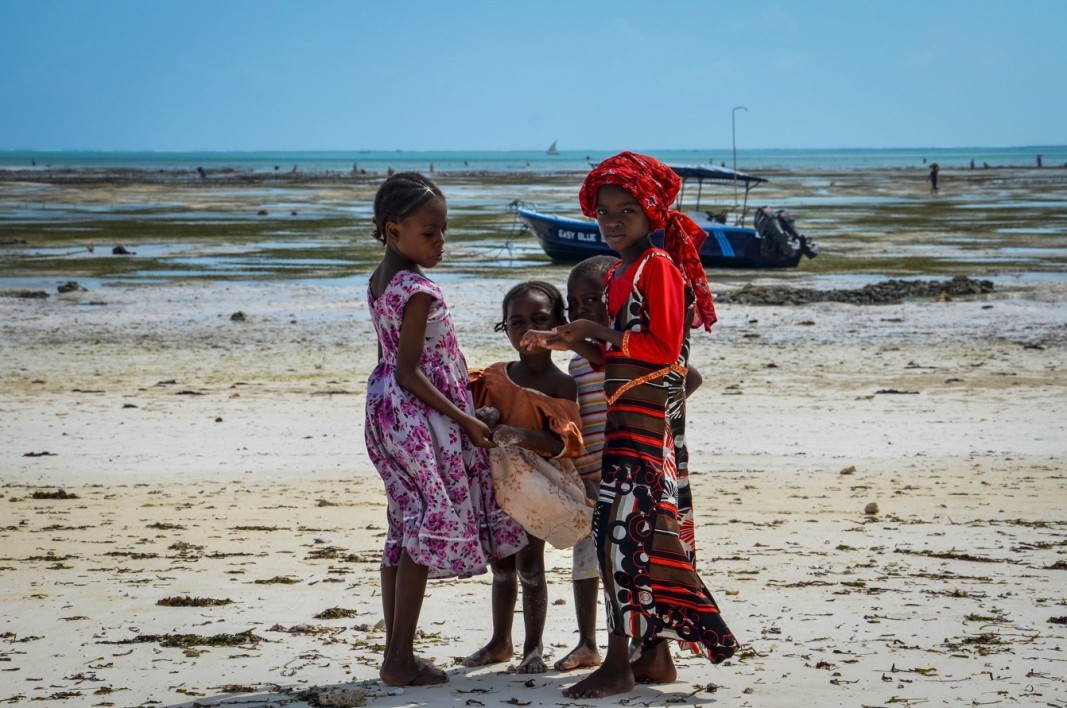Last year the photo exhibition "Far from Africa" by Elena Panayotova and Atanas Kanev toured a number of Bulgarian cities and won the Plovdiv 2023 Award for outstanding achievements in the field of "audiovisual art and photography". The exhibition is currently on display in an expanded version in the Ministry of Culture's Sredets Gallery in Sofia. The exhibition can be viewed until January 31.
The dozens of colour images present all perspectives on the work of the ‘'Artists for Children’' program, produced by the Den Gri Foundation and led by Elena Panayotova for fifteen years in Bulgaria (2002-2017) and six years in Africa (2011-2017).

The programme involved more than 5,000 children and youth at risk and more than 300 artists from two continents. In 2016, the program was among the eight projects out of a total of 1,800 projects worldwide supported by UNESCO for its contribution to cultural diversity. The exposition in Sofia is complemented by the images of photographers Ivan Donchev and Maria Angelova. They have captured moments from the work of the artists and children in the place where the program began at the beginning of the new century - amidst the magic of the Rhodope village of Shiroka Laka.

"Now I am working on the documentary ''Artists for Children''. I spoke with some of the grown-up children and people in Shiroka Laka, who proudly say that the magic of the place has infused the whole program. All our festivals were based on multicultural tales and we used professional costumes. Every year these children had the opportunity to play their performances outdoors, in front of hundreds of people. They became visible and felt the joy of living through theatre. We learn through experience. This magic also captivated our second sponsor, who helped us implement the program in Kenya. We have much to be proud of. And now, after so many years, it is very important for me to talk about what has been achieved," Elena Panayotova told Radio Bulgaria.
Elena Panayotova has described in detail the results and benefits of artistic practices in her first book ‘'Applied Theatre. Theory and Practices from Bulgaria to Africa’', which was presented on January 22 in the Sredets Gallery. It is based on her doctoral dissertation on the subject and two decades of personal and professional experience on two continents.

"Applied theatre" refers to all practices that emerge when artists start entering spaces that are not typical for the theatre, explains Elana Panayotova.

"This kind of theatre "enters" prisons and nursing homes. Playback theatre and sexual health theatre emerge. Augusto Boal’s "Theatre of the Oppressed", developed in the 1970s in Latin America, had a huge influence in Europe. The audience is not just a spectator of a performance, it participates in the performance itself. In other words, the boundary between artist and audience is broken, allowing the audience to be empowered through participation in the process and to receive reflective solutions to questions and situations that concern them. These practices do not work with ready-made dramaturgy; they work with real-life events or specific situations''.
Fully convinced by her experience, Elena Panayotova categorically states that now the only thing that should follow is what already exists in Europe - the Ministry of Education and the Ministry of Culture should join hands, so that theater can enter education. There should be disciplines for training theatre pedagogues. Support should be provided for teachers and artists who want to work in this field. ‘’This process will likely take years, but it has to start somewhere," admits Elena. For her, this process begins amidst the magical nature of the Rhodope Mountains, the unique colors of Kisumu in Kenya, and the inspiring smiles of some happy children.
Translated and published by Kostadin Atanasov
Photos: Elena Panayotova, Ivan Donchev, Atanas Kanev; Facebook- Elena Panayotova
The Gala Concert of the National Ballet of El Salvador will take place today at 16.00 in the State Opera House in Stara Zagora as part of the programme of the 54th International Festival of Opera and Ballet Arts . The founder and director of..
The ninth edition of the initiative Poetry in the Metro opens today and lasts until 23 December. The project was initiated by the Polish Cultural Institute in Sofia. It includes poems by 20 European writers. They will be displayed on panels..
Awakener/enlightener - a person who, through his actions, ideas or creative work, awakens the spirit of the people, preserves and spreads national identity, culture and education. In Bulgarian history, this term is most often associated with the period of..
“A story that is worthy of a movie” is what we often say when we hear about some incredible event or an interesting story. It is cinema..
The fourth national Biennial of Illustrations opens today in the triangular tower of Serdica, part of the Regional Museum of History in Sofia. As..

+359 2 9336 661
